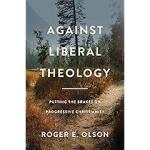In a sideways move toward answering that question, consider the prayer of 1 Peter 5:10: "The God of all grace, who hath called us unto his eternal glory by Christ Jesus, after that you have suffered for a while, make you perfect, stablish, strengthen, settle you." Peter also understands perfection as something that happens to us rather than something we accomplish by filling out our daily planner assiduously, gritting our teeth, and setting to. Planning and gritting and setting to may often be necessary, but they aren't the means by which we will be perfected. The only requirement Peter mentions is suffering. That will make us perfect (understood in this verse as being able to meet the requirements set for us), will establish us, and will strengthen us.
Peter doesn't pray that the saints will suffer, but he also doesn't pray that they won't. Suffering is a fact, but a Christian who remembers the suffering of Jesus can hardly expect not to be required also to suffer. As the Book of Mormon prophet Alma teaches of Jesus:
And he shall go forth, suffering pains and afflictions and temptations of every kind; and this that the word might be fulfilled which saith he will take upon him the pains and the sicknesses of his people. And he will take upon him death, that he may loose the bands of death which bind his people; and he will take upon him their infirmities, that his bowels may be filled with mercy, according to the flesh, that he may know according to the flesh how to succor his people according to their infirmities. (Alma 7:11-12; emphasis added)
If we wish to be like the Savior, to know what he knows, we must imitate his suffering. But it is important to notice that the word translated "suffering" in 1 Peter 5:10 is broader than the English term "suffering." It means "to experience" and "to endure" as well as "to suffer pain." The promise implicit in Peter's prayer is that if we endure the experience given by God, we will meet the requirements he has set for us, we will be made immoveable ("stablished"), strengthened, and set on a foundation stone ("settled"), presumably the foundation stone of Jesus Christ (cf. Eph. 2:20).
I take the Book of Mormon prophet Mormon to teach the same thing in different words and, at the same time, to give us a key to understanding how being perfected is possible:
Wherefore, my beloved brethren, pray unto the Father with all the energy of heart, that ye may be filled with this love, which he hath bestowed upon all who are true followers of his Son, Jesus Christ; that ye may become the sons of God; that when he shall appear we shall be like him, for we shall see him as he is; that we may have this hope; that we may be purified even as he is pure (Moroni 7:48).
If, as I suspect based on little more than intuition, Matthew 5:48 is an allusion to Leviticus 19:2—"Ye shall be holy: for I the Lord your God am holy"—then Moroni tells us how holiness, in other words purity, is achieved: I must pray to be filled with love; and to have that love is to truly follow, to be like, Jesus Christ. It is to become a child of God in the fullest sense. The gift of love is the result of prayer and it is through the gift of love that I become perfect, like the Son of God because loving like him.
Another Book of Mormon prophet, Alma the Elder, describes the goal of that Christly love when he addresses people who wish to be baptized:
Ye are desirous to come into the fold of God, and to be called his people, and are willing to bear one another's burdens, that they may be light; yea, and are willing to mourn with those that mourn; yea, and comfort those that stand in need of comfort, and to stand as witnesses of God at all times and in all things, and in all places that ye may be in, even until death (Mosiah 18:8-9).
This describes the perfection that Jesus demands: to be willing to bear one another's burdens without asking whether I deserve to or whether the person with the burden deserves it; to be willing to mourn, genuinely, with mourners and to comfort those who need comfort; and to endure to the end as a witness of God by living the life of love given to me.





